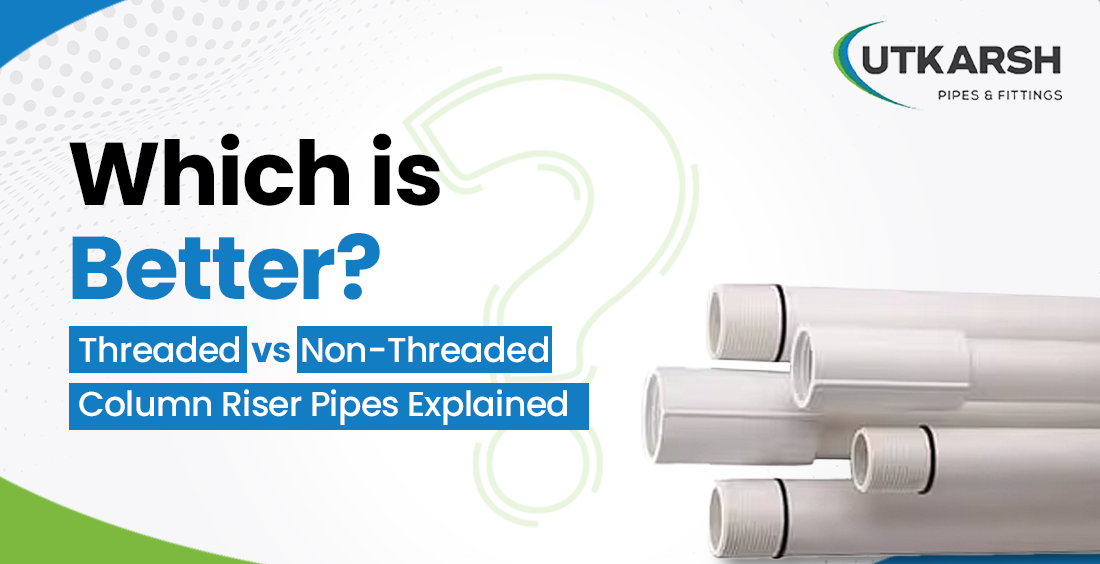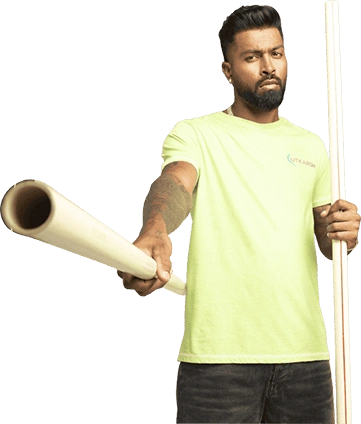Which is Better? Threaded vs. Non-Threaded Column Riser Pipes Explained

Water doesn't magically appear at your tap—it takes an entire system to move it from deep underground to your home, farm, or factory. At the core of this system are Column Riser Pipes, the unsung heroes that carry water up from borewells to the surface. But there’s a big question many face while setting up: Should you go with Threaded Column Riser Pipes or non-threaded ones?
It’s not just a technical choice—it affects how smooth your water flow will be, how often you’ll need repairs, and how much you’ll spend on maintenance. Choosing the right type of riser pipe can save you from headaches down the line, whether you're pumping water for a single household or an entire agricultural field.
Let’s break down both options and help you figure out which one’s the right fit for you!
What Are Column Riser Pipes?
Before comparing, let’s quickly understand what Column Riser Pipes are. These pipes connect the submersible pump installed in a borewell to the ground level to ensure smooth water flow. They carry the load of the pump, handle water pressure, and resist corrosion over time.
Modern setups often prefer uPVC Column Pipes due to their strength, non-corrosive nature, and lightweight design. But the bigger debate lies between using threaded or non-threaded riser pipes. Let’s see how they stack up.
Threaded Column Riser Pipes: Pros & Cons
What Are Threaded Column Riser Pipes?
Threaded pipes come with screw-like ends. They are manually tightened and locked into place. The threads create a secure joint, holding each pipe segment together tightly.
Benefits of Threaded Column Riser Pipes
Drawbacks of Threaded Column Riser Pipes
Non-Threaded Column Riser Pipes: Pros & Cons
What Are Non-Threaded Column Riser Pipes?
Non-threaded pipes use push-fit, clamp, or other joint mechanisms instead of screw threads. They rely on seals, rings, or clamps to stay connected.
Benefits of Non-Threaded Column Riser Pipes
Drawbacks of Non-Threaded Column Riser Pipes
Threaded vs. Non-Threaded: How to Choose?
Here are actionable tips to help you decide:
1. Check Borewell Depth
2. Consider Maintenance Requirements
3. Budget & Application Type
4. Look for Quality Seals and Rings
Regardless of which type you choose, always check if the pipes come with industrial-grade rubber sealing rings. These rings absorb pump vibrations, reduce leakage, and extend the pipe’s lifespan—especially crucial for non-threaded systems.
Why Quality Matters: Utkarsh Pipes & Fittings
Choosing between threaded and non-threaded is important, but even more critical is who you’re buying from. Low-quality riser pipes—regardless of type—can lead to leaks, pump damage, and costly repairs.
This is where Utkarsh Pipes and Fittings steps in as a trusted name. As one of India’s leading manufacturers and suppliers of Column Riser Pipes, we offer a complete range tailored to various needs.
Made from superior uPVC compounds, Utkarsh’s uPVC Column Pipes feature heavy-duty sealing rings crafted from certified industrial-grade rubber. These rings effectively absorb pump vibrations, create leak-proof joints, and boost the longevity of each riser pipe.
Each pipe is manufactured using top-quality materials sourced from reputed industry leaders, ensuring that they meet—and exceed—industry standards. Whether you’re dealing with residential, agricultural, or industrial applications, Utkarsh pipes and fittings ensures smooth and superior performance every time.
Know more: 6 Things to Know About CPVC Pipes and Fittings by Utkarsh Pipes
Final Thoughts: Which Riser Pipe Is Better?
There’s no one-size-fits-all answer. Your choice boils down to:
If you want the extra security and strength for deeper borewells or heavy-duty use, threaded Column Riser Pipes are your best bet. If you prefer quick installation and lower costs, non-threaded might be right.
Whichever you choose, always prioritize quality materials like those from Utkarsh Pipes & Fittings to ensure leak-proof, vibration-absorbing, and long-lasting performance.
FAQs:
What is the purpose of a pipe riser?
A pipe riser is a vertical pipe that carries fluids, usually water, from lower levels to higher levels, ensuring smooth and efficient flow.
What is the difference between a pipe and a riser?
A pipe is a general term for any hollow cylinder used to transport fluids like water, gas, or oil. It can run horizontally, vertically, or underground.
A riser, on the other hand, specifically refers to a vertical pipe that carries fluids upward, typically from a lower level to a higher level—like from a borewell to the surface. So, while all risers are pipes, not all pipes are risers.
Can riser pipes be used for industrial applications?
Yes, riser pipes are used in a variety of industries, including agriculture, municipal water supply, mining, and construction, wherever there’s a need to transport water vertically or under pressure.











